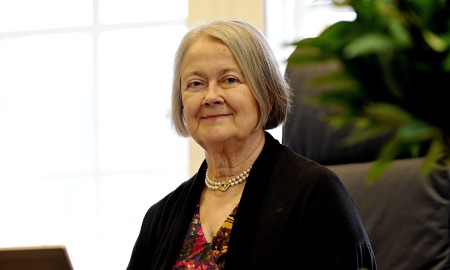UKIP pledge exemptions from anti-discrimination laws
UKIP is offering Christians whose ‘religious conscience’ renders them uncomfortable conforming to legislation relating to issues such as same-sex marriage protection in the workplace under measures proposed in a pre-election ‘mini manifesto’.

In a document published on election candidates’ websites, Party leader Nigel Farage makes it clear that, despite UKIP’s objection to the introduction of same-sex marriages, there would be no attempt to reverse the law that recognises them as the same as heterosexual unions. No action would be taken against a baker who, for example, refused based on their religious objection to same-sex marriage to adorn a wedding cake with miniature representations of a same-sex couple.
The manifesto says: “We will not repeal the legislation, as it would be grossly unfair and unethical to ‘un-marry’ loving couples or restrict further marriages, but we will not require churches to marry same-sex couples. We will also extend the legal concept of ‘reasonable accommodation’ to give protection in law to those expressing a religious conscience in the workplace on this issue.”
Reasonable accommodation means employers would have to makes allowances for people’s beliefs as long as this does not impose an undue burden. Duties that could be interpreted as accepting the legitimacy of same-sex marriages would be included in the exemption.
Last year, a judge who ruled against Peter and Hazelmary Bull, a pair of guest-house owners who refused on the grounds of their faith to honour a booking for a double room made for what turned out to be a gay couple, suggested the new legislation should have a “conscience clause” for Christians, arguing that she did not think the law found a “reasonable accommodation of all the different strands” in the debate on religious objection.
The incident led to a string of court cases, which culminated in defeat for the Bulls at the Supreme Court, where Lady Hale, leading four other judges, ruled that the rights of the gay couple outweighed the conscience of the Christian couple.
Lady Hale declared in her Supreme Court ruling that we should be “slow to accept” the right of Christians to discriminate against gay people.
In an unusual move, Lady Hale and her fellow judges ordered that the Bulls, who were in their seventies, would not be liable for legal costs – a decision which spared them a bill for the lawyers who represented the gay couple that would have put them out of business.
In a speech to Irish lawyers last year, Lady Hale gave an indication that her judgement against Mr and Mrs Bull may have been too harsh, asking whether courts might be better off taking “a more nuanced approach”. She said: “An example of treatment which Christians may feel to be unfair is the recent case of Bull v Hall. Should we be developing an explicit requirement upon providers of employment, goods and services to make reasonable accommodation for the manifestation of religious beliefs?”
Gay rights activists have condemned those comments and have expressed outrage at UKIP’s “crazy” Christian Manifesto.
Alexandra Swann, writing for The Commentator, says: “I am loath to oppose any policy that would reduce the risk of prosecution of citizens for their thoughts, opinions or beliefs. In fact, not long ago I was defending Farage on the BBC when the media woefully misrepresented his comments to Trevor Phillips on the subject of liberalising obsolete racial discrimination laws.
“But whereas then Farage was arguing a principle that both the Conservatives and Labour have supported — that it should be legal for employers to take on a British citizen over a migrant to tackle shocking levels of UK youth unemployment — here UKIP is pandering to an insidious element within religion that could lead to outright discrimination towards homosexual men and women going about their day-to-day life.
“If this were to come into law it would be largely unworkable. It would be nigh on impossible to determine whether a person held genuine ‘religious conscience’ or just niggling homophobia. Would it only be Christians who would be allowed to discriminate according to their beliefs or would it apply to followers of other religions too? Not only is this awful policy but, more importantly so close to an election, it is terrible politics.”
In his foreword to UKIP’s Christian Manifesto, Nigel Farage says: “This does not, of course, mean we should be disrespectful of other faiths, only that ours is fundamentally a Christian nation and so we believe Christianity should be recognised by government at all levels.
“Sadly, I think UKIP is the only major political party left in Britain that still cherishes our Judaeo-Christian heritage. I believe other parties have deliberately marginalised our nation’s faith, whereas we take Christian values and traditions into consideration when making policy.”
UKIP is also emphasising the importance of traditional families, saying: “Traditional Christian views of marriage and family life have come under attack of late.” It added: “We have no problem in supporting and even promoting conventional marriage as a firm foundation for a secure and happy family.”
For once, I am siding with Mr Farage. Activists have been misusing anti-discrimination legislation to close down organisations and bankrupt their proprietors by launching spurious law suits alleging damage to fragile sensibilities.
As an example, I do not get particularly upset when I hear what we in the media are forced to refer to as ‘the N word’ – though I accept others might. In fact it is the very phrase ‘the N word’ that is more irritating to me. But even if I were offended, it wouldn’t occur to me to sue anyone.
I frankly found it outrageous that a retired couple who, let’s face it, lived a significant percentage of their lives through a time when a gay man, if outed, faced jail, should suddenly find themselves in a position where a simple objection to potentially hosting a pair of sodomists, meant their livelihoods and, given their advanced years, their lives were being threatened.
I don’t think I am overstating things here. Mr and Mrs Bull’s lives have been changed irrevocably by losing their case – a case two relatively young gay men and their legal representative thought was important enough to attempt to snatch everything an elderly couple had worked for.
If, as they often claim, gay people are so regularly discriminated against; why are they so easily outraged? The answer is they’re not – any more than I am by the occasional racial slur or blatant discrimination based on my skin colour. If someone does not want me in their establishment, be it a hotel, restaurant or anywhere else, that place immediately becomes the last place I’d want to sleep, eat or anything else. Someone else will gain from their loss because I will find a bed for the night and eat my fill.
Put simply, there is something about laws that enforce tolerance that sticks in my craw. Equality laws make superficial changes but solve little. Allowing someone the same rights as you have is intrinsically condescending; leaving the beneficiary just that tiny bit unequal by virtue of their indebtedness. True equality is taken, never accepted . . . but that’s revolution talk.









